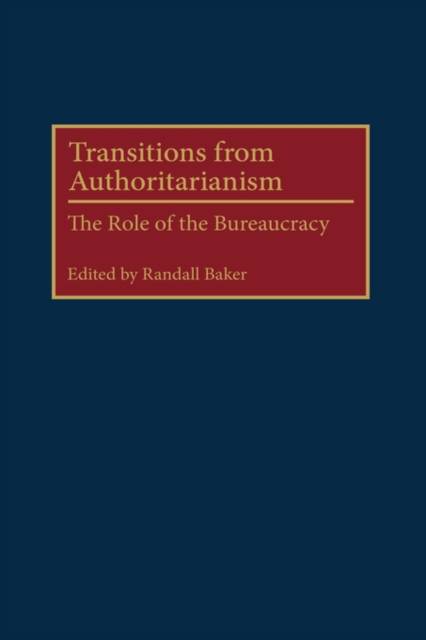
- Afhalen na 1 uur in een winkel met voorraad
- Gratis thuislevering in België vanaf € 30
- Ruim aanbod met 7 miljoen producten
- Afhalen na 1 uur in een winkel met voorraad
- Gratis thuislevering in België vanaf € 30
- Ruim aanbod met 7 miljoen producten
Omschrijving
Baker and his colleagues provide a blend of the theoretical and the empirical evidence in an examination of the nature of bureaucracy under non-democratic, authoritarian forms of government, whether on the right, as in Portugal, or the left, as in Bulgaria. In all these instances, the bureaucracy was constructed to serve the distorted interests of centralized, unaccountable power. Following the remarkable spread of democracy in the seventies in Iberia, the eighties in much of Latin America, parts of Asia and Africa, and the nineties in the former USSR and the Warsaw Pact countries, the main focus was on reforming the economy and the political institutions.
Distinguished scholars concentrate on the inherited bureaucracy--the arm of government with which the people most often have to deal. They highlight the undemocratic, and sometimes antidemocratic, nature of the civil service that is supposed to serve democracy. Others consider the nature of reform as experienced, and as needed, why there is no major policy for real reform of the bureaucracy in many countries, and the similar experience of reforming from the left and the right. Contributors discuss specific experiences as case studies and examine the more general question of what lessons can be learned from this unique perspective into comparative public administration reform. Essential reading for scholars, students, policy makers, and others involved with comparative government and public administration.Specificaties
Betrokkenen
- Auteur(s):
- Uitgeverij:
Inhoud
- Aantal bladzijden:
- 320
- Taal:
- Engels
Eigenschappen
- Productcode (EAN):
- 9780275964580
- Verschijningsdatum:
- 30/10/2001
- Uitvoering:
- Hardcover
- Formaat:
- Genaaid
- Afmetingen:
- 152 mm x 229 mm
- Gewicht:
- 639 g

Alleen bij Standaard Boekhandel
Beoordelingen
We publiceren alleen reviews die voldoen aan de voorwaarden voor reviews. Bekijk onze voorwaarden voor reviews.











